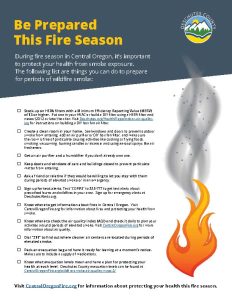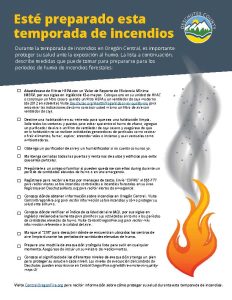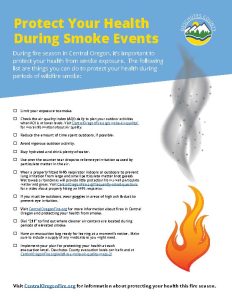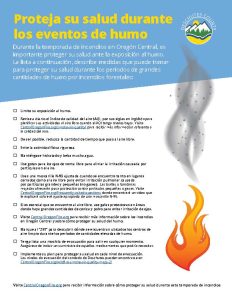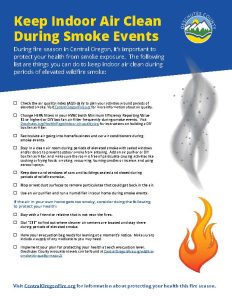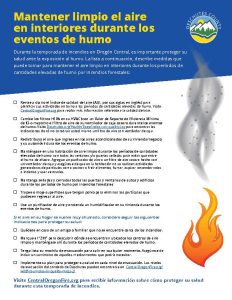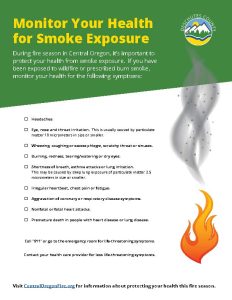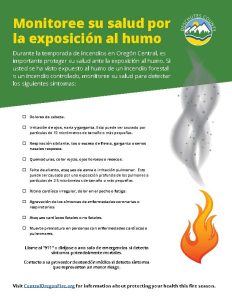In Central Oregon, dry and warm conditions – usually in summer – can bring smoke from wildfires both near and far. Whether you are a local or a visitor, there is always a chance that smoky air will change your plans. The best thing to do is be ready. Smoky air can be harmful to your health- but there are things you can do to protect yourself and your loved ones. Here is what you need to know.
What You Can Do To Protect Your Health
There are things everyone needs to know to protect their health when it’s smoky outside. For a list of guidelines, visit the Smoke and Your Health page or download the checklists below. Watch the videos of Dr. Mark Press from Mosaic Medical talking about some specific things you can do.
Populations Vulnerable to Wildfire and Prescribed Burn Smoke
Everyone can be affected by wildfire smoke, but certain people may have worse symptoms. If you have any of the conditions below, you might need to take extra precautions when it’s smoky outside.
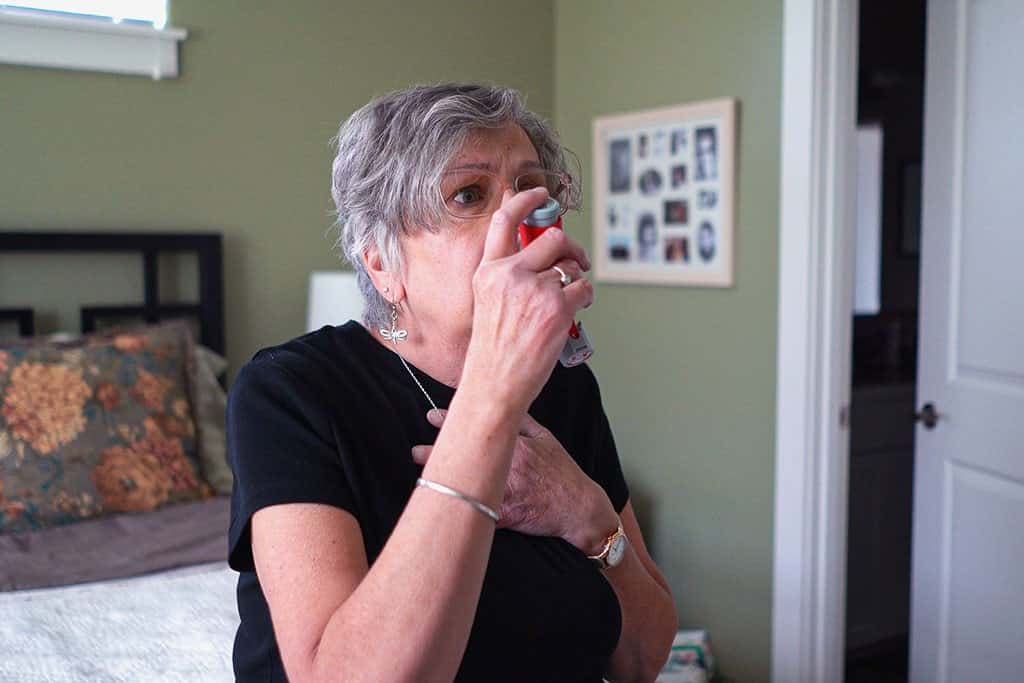
Respiratory conditions, like asthma, chronic bronchitis, COPD, or emphysema
How smoke can impact you: Smoke can be a trigger for symptoms, such as wheezing, breathlessness, chest tightness or coughing especially early in the morning or at night.
What you can do to protect your health: Have at least a 5-day supply of medication on hand. Make sure you have a written management plan for asthma or other respiratory conditions and follow it. Keep indoor air as clean as possible. If you are having a medical emergency from smoke, call 911 or go to the hospital immediately.
Cardiovascular (heart) disease
Heart disease is the leading cause of death among Americans, according to the Centers for Disease Control.
How smoke can impact you: Particles in smoky air can trigger cardiovascular disease symptoms or cause them to worsen. These symptoms include elevated blood pressure, arrhythmias, heart attacks, stroke, and heart failure.
What you can do to protect your health: Have at least a 5-day supply of medication on hand. Keep indoor air as clean as possible. Ask your doctor how to protect your health when it’s smoky outside. If you are having a medical emergency from smoke, call 911 or go to the hospital immediately.
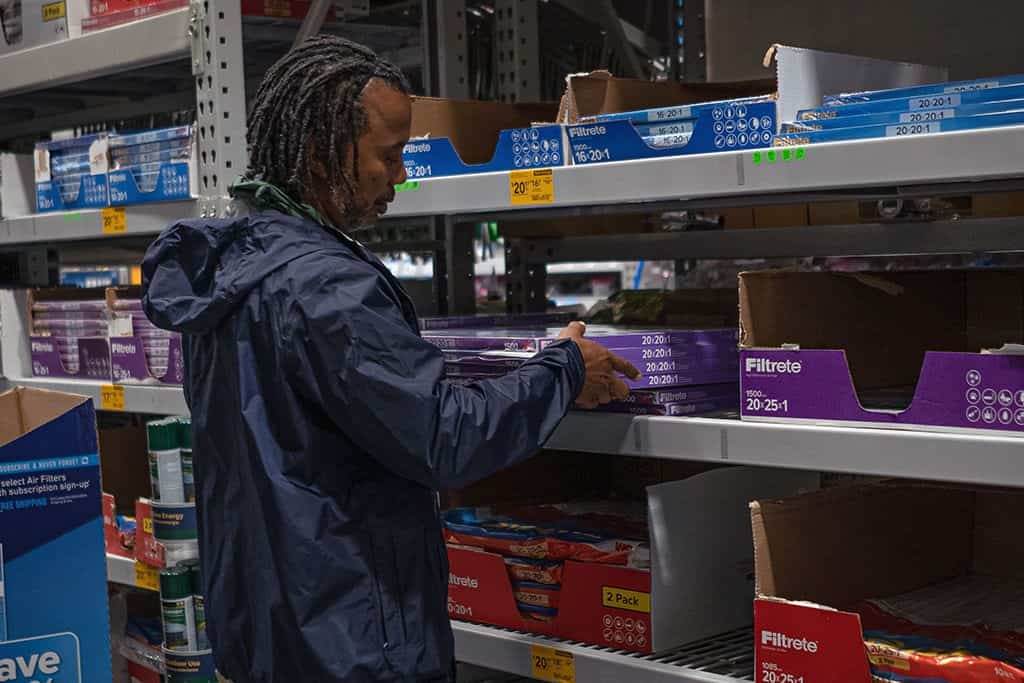
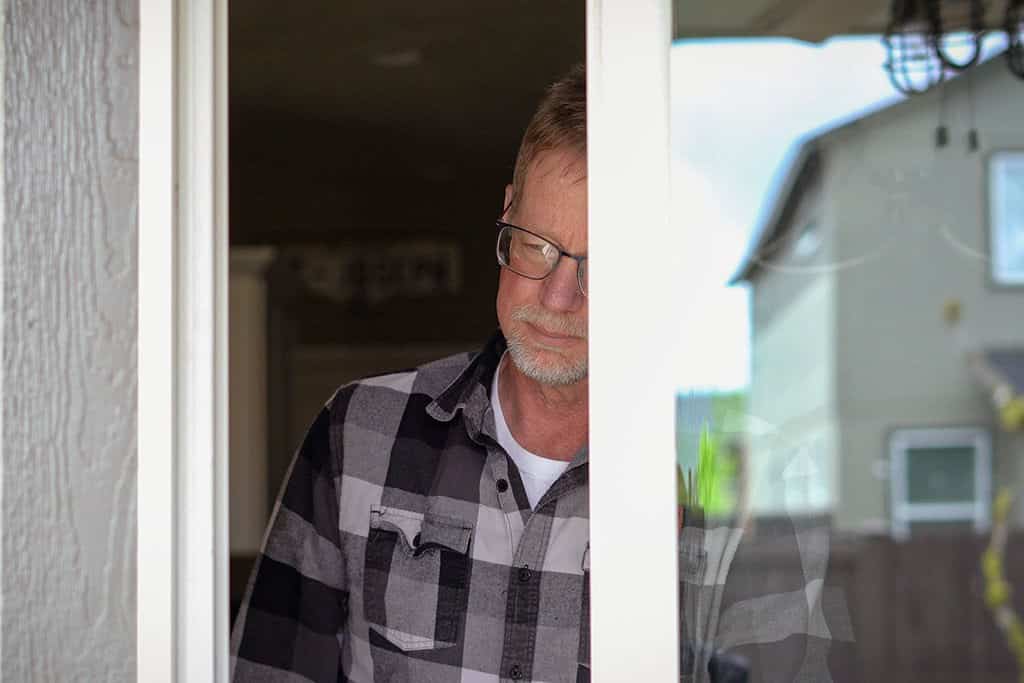
Persons 65 years of age and older
How smoke can impact you: People become more predisposed to certain health risks as we age, including chronic respiratory and heart conditions. Older people can have varying degrees of health and mobility.
What you can do to protect your health: If you take medicine, have at least a 5-day supply on hand. Keep indoor air clean when it’s smoky outside. If there is an unhealthy level of smoke in your neighborhood and you’re unable to keep indoor air clean, consider staying with friends/family that live outside of the smoky area. Contact a medical provider if you experience any symptoms of smoke exposure.
Infants and Children
How smoke can impact them: Children are at risk when exposed to smoke because their lungs are still developing. They can experience wheezing or coughing, trouble breathing, nose/throat/eye burning, dizziness, chest tightness and pain, or other symptoms.
What you can do to protect their health: Check for school closings- sports and outdoor activities may be cancelled (more resources about smoke and air quality here). Pay attention to the local AQI (learn how to check it here) and follow advice for ‘sensitive individuals’. Remember that dust masks, cloth masks, and surgical masks will not protect your child from smoke. N95 masks are not made to fit children and may not protect them. If your child has severe trouble breathing, is very sleepy, or will not eat or drink, reduce their exposure to smoke and get medical help right away. Talk to children about your family’s evacuation plan and involve them in preparing their own emergency go-kit. Create a pocket plan with this great tool. For more information about protecting children from smoke, check out this resource.
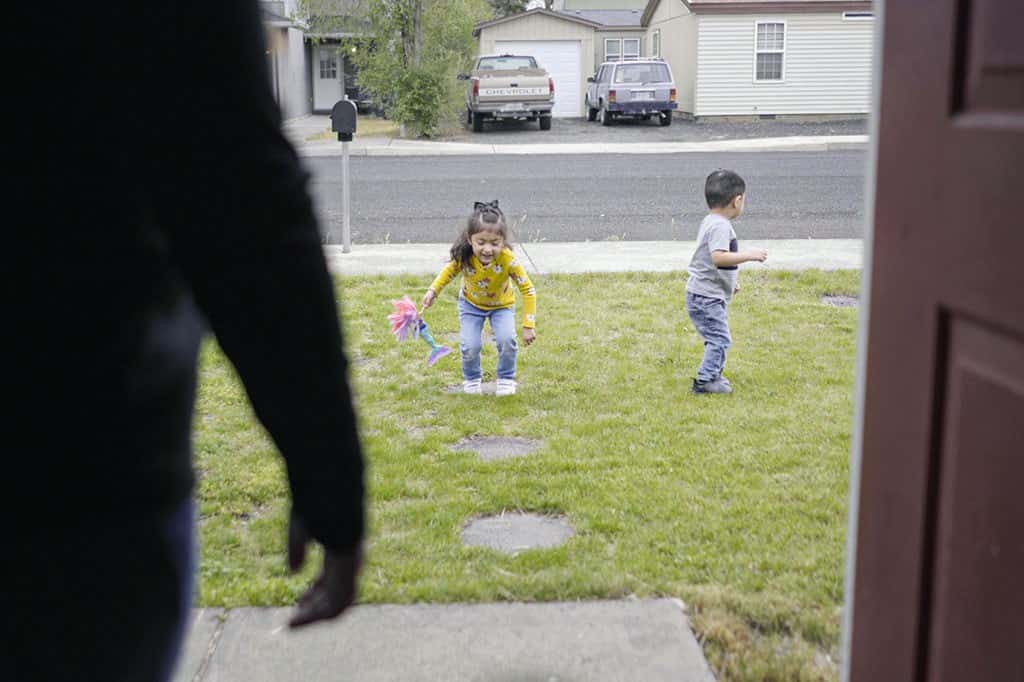
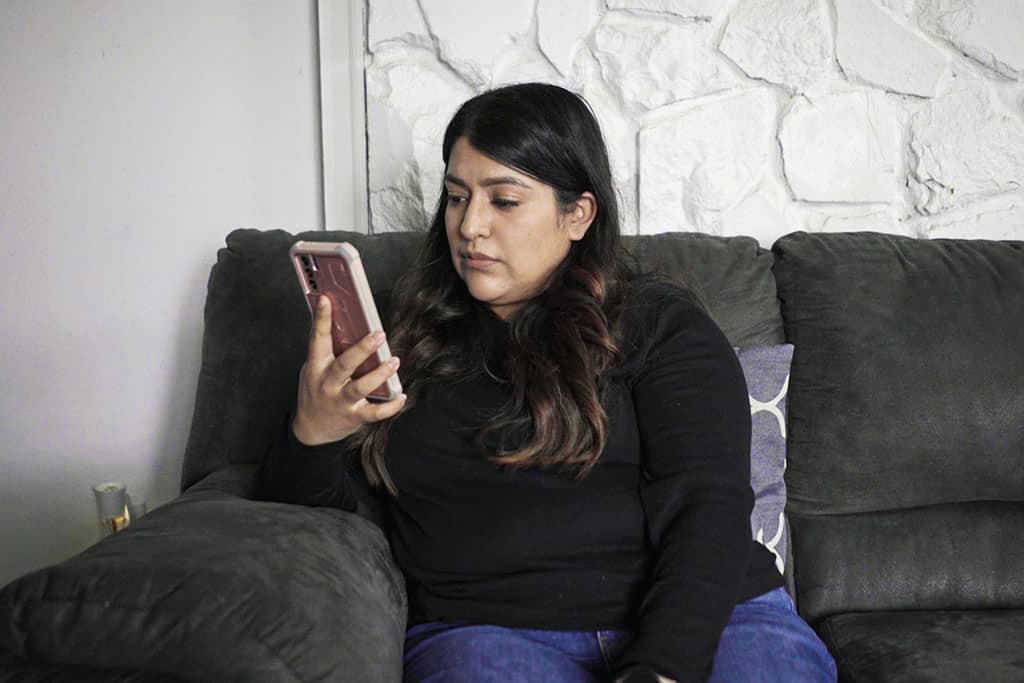
Pregnant Women
How smoke can impact you: Women’s bodies change during pregnancy in ways that can make them more vulnerable to smoke exposure, including increased respiratory rates. Research is ongoing regarding the impacts to a developing fetus if a pregnant woman is exposed to smoke. Some impacts may include miscarriage, preterm birth and low birth weight.
What you can do to protect your health: Pay attention to the local AQI (learn how to check it here) and follow advice for ‘sensitive individuals’. Keep indoor air as clean as possible during periods of elevated smoke. If there is an unhealthy level of smoke in your neighborhood and you’re unable to keep indoor air clean, consider staying with friends/family that live outside of the smoky area or call 211 to find a local cleaner air center location. Follow your health care provider’s advice and update your delivery plan in case you need to evacuate. Know the signs of labor and early labor, and call your healthcare provider or 911 right away or go to hospital if you begin labor.
Smokers
How smoke can impact you: Smoking increases your risk of cardiovascular and respiratory diseases, cancer and death. Particles from wildfire and prescribed burn smoke that enter your body can further increase your risk of developing or worsening a chronic condition.
What you can do to protect your health: Stop smoking, especially indoors. Keep indoor air as clean as possible during a smoke event. Consult a healthcare provider about how to stop smoking and further protect your health. Call your healthcare provider if you experience symptoms of a chronic condition or smoke exposure.
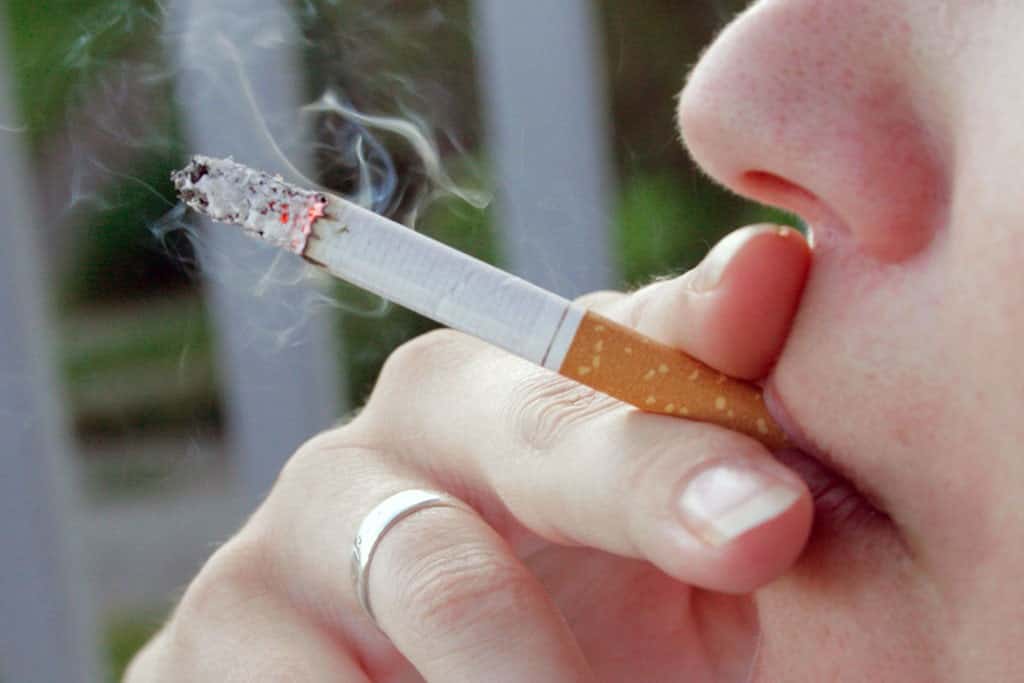
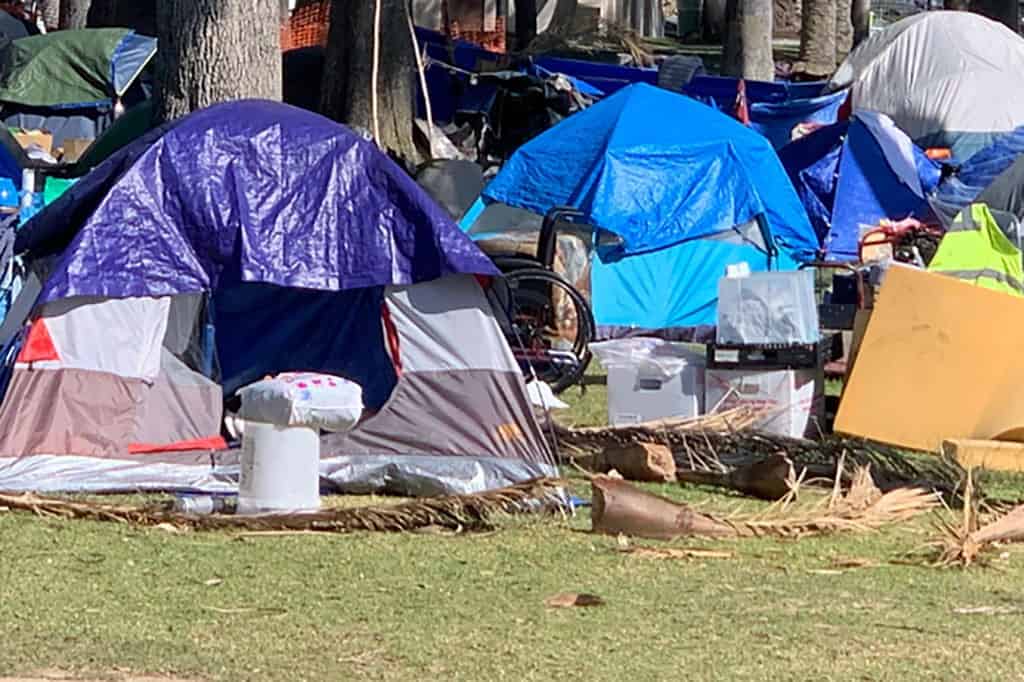
Houseless Persons
How smoke can impact you: Extended periods in smoky air can impact your health and increase your risk of developing a chronic respiratory or heart condition. If you already have a chronic condition, exposure to smoke can trigger symptoms or make them worse.
What you can do to protect your health: If there is smoke and you can’t see past 5 miles, consider seeking temporary shelter inside at a public cleaner air space in your community. You can call 211 for local cleaner air center locations.

